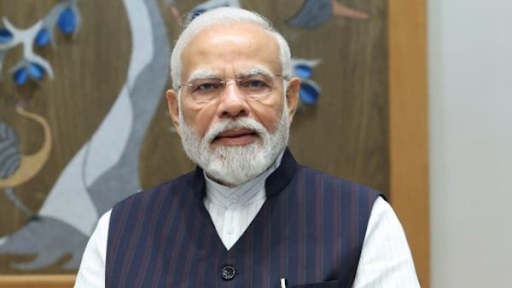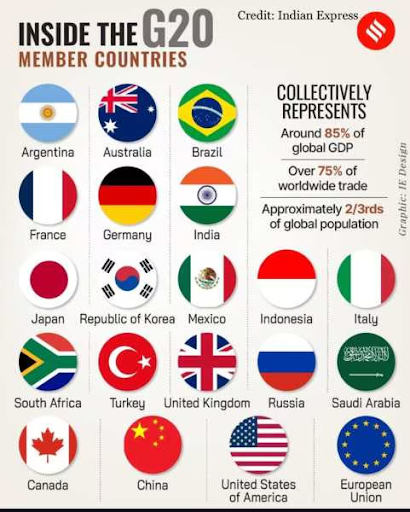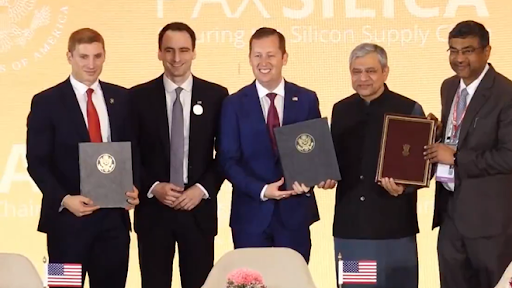



The 2025 Johannesburg G20, the first hosted in Africa, brings a Global South troika of India, Brazil, and South Africa. It offers a chance to embed developing-country priorities as India advances IMEC, the Biofuel Alliance, DPI, and MDB reforms. Success depends on concrete progress on debt, climate finance, and development.

Copyright infringement not intended
Picture Courtesy: newsonair
The Prime Minister of India to attend the 20th G20 Leaders' Summit in Johannesburg, South Africa.
The G20, or Group of Twenty, is an international forum bringing together the world's major economies to address global challenges such as international financial stability, climate change, and sustainable development.
Origin and Purpose
Membership
Its members represent approximately 85% of global GDP, over 75% of global trade, and about two-thirds of the world's population.

The G20 does not have a permanent secretariat or headquarters.
Its leadership rotates annually among members, a system managed by the Troika—comprising the past, present, and incoming presidencies—to ensure continuity.
For 2025, the Troika consists of Brazil (2024), South Africa (2025), and the United States (2026).
|
Year |
Presidency |
Key Focus/Outcomes |
|
2023 |
India |
Theme: "Vasudhaiva Kutumbakam" (One Earth, One Family, One Future). Key achievements included the admission of the African Union as a permanent member, the launch of the Global Biofuel Alliance, and a focus on Digital Public Infrastructure (DPI) and amplifying the voice of the Global South. |
|
2024 |
Brazil |
Theme: "Building a Just World and a Sustainable Planet". |
|
2025 |
South Africa |
Theme: "Solidarity, Equality and Sustainability" |
|
2026 |
United States |
The U.S. will take over the presidency after South Africa. |
Source: newsonair
|
PRACTICE QUESTION Q. Consider the following statements in context of the G20? 1. It has a permanent secretariat located in a rotating member country. 2. The Presidency rotates annually among member countries. 3. A "Troika" comprising the previous, current, and incoming presidencies. 4. Decisions made by the G20 are legally binding on all member states. Select the correct answer using the code given below: A) 1 and 4 only B) 2 and 3 only C) 1, 2 and 3 only D) 2, 3 and 4 only Answer: B Explanation: Statement 1 is incorrect: The G20 operates without a permanent secretariat or staff. The incumbent chair establishes a temporary secretariat for its term. Statement 2 is correct: The G20 Presidency rotates annually among the members, following a system that ensures regional balance. Statement 3 is correct: To ensure continuity of the agenda, the presidency is supported by a "Troika" consisting of the current, immediate past, and next host countries. Statement 4 is incorrect: G20 decisions and declarations are non-binding and not legally enforceable. |
The Johannesburg Summit is significant for two main reasons. Firstly, it's the first G20 summit to be hosted by an African nation after the African Union (AU) was admitted as a permanent member, amplifying Africa's voice in global governance. Secondly, it marks the culmination of a 'troika' of three major developing economies—India (2023), Brazil (2024), and South Africa (2025)—leading the G20 consecutively, providing a unique opportunity to advance the agenda of the Global South.
The G20 Troika consists of the country holding the current presidency, the country that held it the previous year, and the country that will hold it the next year. This structure ensures continuity in the G20's agenda. The current troika of India, Brazil, and South Africa is unprecedented because it's the first time three major Global South countries are leading the G20 back-to-back, allowing for a sustained focus on the developmental priorities of emerging economies.
The G20 faces major obstacles, including deepening geopolitical divisions like the Russia-Ukraine conflict and US-China rivalry, which hinder consensus. There is also an "implementation deficit," where member states fail to translate declarations into concrete actions. Diverging economic priorities create policy gridlock, with developed nations focusing on inflation and developing nations prioritizing debt, poverty, and climate change.




© 2026 iasgyan. All right reserved